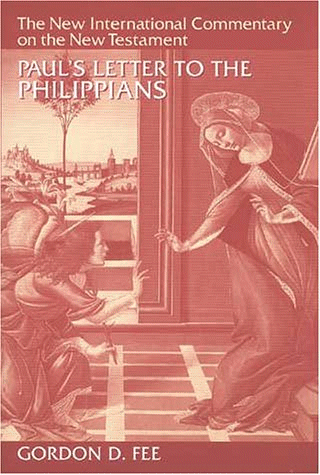Here are some of my all time favourite books reviewed for you. If you haven’t read them you should. If you can’t afford them, I’ll lend them to you. If you don’t have time to read them then stop eating and read these instead during mealtimes.
The Cross of Christ (John Stott) 5/5
At a conference organised by John Piper, a panel of speakers was asked what their book recommendations were. One of the recommended titles was The Cross of Christ, so I dutifully went and bought it along with some other recommendations the next day. It was advice well taken and money well spent, because this book is truly inspirational. It has opened my eyes to the glories and theology of the cross at a much deeper level than I had before.
John Stott’s style of writing is easy to follow, and while he doesn’t avoid academic discussions he seeks to make them plain to understand. The book starts off by dealing with the story of the cross, starting with some very helpful insights into the Last Supper. Stott then goes on to deal with the questions of “Who killed Jesus?” and “Why did Jesus die?”.
The book then goes on to develop a solid theological understanding of the cross. This is most helpful as it is easy to grasp only part of the picture without taking in the full meaning. Stott shows brilliantly the need to understand the cross both as satisfaction for sin, and as substitutionary. He deals masterfully with the many varied pictures of the cross in providing justification, redemption, reconciliation and atonement. He provides some great insights into the difficult subject of propitiation and its crucial role in a right understanding of the cross.
Throughout the book, John Stott explains the range of alternative viewpoints held amongst different theologians, and even those held by other religions and non-believers. In each case, he clearly and consisely explains their viewpoint along with their reasons for it and then goes on to systematically show where these views are inconsistent with Scripture.
After reading this book, you will undoubtedly be led to worship God for such a great salvation that demonstrates his power, love, wisdom and justice. Many hymns and choruses will come alive as their words take on a new richness of meaning for you.
When I survey the wondrous cross
On which the prince of glory died
My richest gain I count as loss
And pour contempt on all my pride (Isaac Watts)
An on the cross, as Jesus died,
The wrath of God was satisfied
For every sin on him was laid
Here in the death of Christ I live (Stuart Townend)
Let the Nations be Glad (John Piper) 5/5
The overall theme of this book is missions, but John Piper approaches the subject in a unique way. The book has only 5 (fairly lengthy) chapters and is gripping reading right from the opening paragraph. In fact if you simply read the first page in a bookshop I am quite sure that you will want to buy the book.
The first chapter deals with worship. Those who have read other books by John Piper will know that he has a great emphasis in all his writings that our chief purpose in life is to glorify God by enjoying Him. It is this perspective that enables Piper to show that worship is the ultimate goal of mission. “Mission exists because worship doesn’t”. He challenges us that we must be worshippers ourselves before we can call others to worship. “You can’t commend what you don’t cherish”. In this chapter he brilliantly shows by an overwhelming list of proof texts that God’s great passion is for his own glory. The chapter concludes by urging us to both commit ourselves and call others to the “white-hot worship of God”.
The second chapter deals with the subject of prayer. Piper uses the picture of a war-time walkie-talkie to explain that prayer is not for us to request refreshments but a strategic weapon in spiritual warfare. He gives an extensive list of things that people prayed for in the Bible and challenges us to consider the subject and goal of our praying.
The third chapter is even more inspiring and provocative. It touches on the difficult subject of suffering. He proves, again with a long list of scriptures, that we are called to suffer. He presents many moving testimonies from church history. This is perhaps the most challenging of the chapters in this book.
The remaining 2 chapters of this book are given over to proving 3 points of doctrine. Again, in his typical style, Piper attempts to put these questions beyond all reasonable doubt by quoting numerous Scripture references. The first two of these points, though controversial in some circles, are broadly accepted by evangelicals. These are, firstly, the eternal conscious punishment of hell and secondly, the impossibility of being saved apart from through faith in Jesus Christ. When put together these two sobering truths provide us with a theological basis for the urgency of mission.
The final point of doctrine Piper seeks to establish is a somewhat surprising one. This is that the goal of mission is not to save as many people as possible, but rather to reach as many peoples as possible. I must admit that this initially seemed a rather novel idea to me at first, but Piper argues very persuasively. After all, why send missionaries to evangelise in foreign countries and cultures when there is so much work to be done here, that doesn’t require learning languages and coping with difficult climates? It is because God will be most glorified by a redeemed community made up of every tribe, nation, language and people.
Communion with God (John Owen) 5/5
The writings of the Puritans have been somewhat neglected over recent years for two main reasons. Firstly, the stereotyped image many people have of them as being self-righteous legalistic kill-joys. Secondly, their writings are difficult to read due their use of old English and their long-winded arguments. If these two reasons are all that has kept you from reading Puritan writings then this little book is for you.
The book has been modernised and abridged, but vocabulary has only been updated where absolutely necessary so the book retains an authentic John Owen feel. Shining through the pages is John Owen’s vibrant personal faith and in places he breaks out into beautifully phrased praise to his Beloved. You can’t help but be inspired and humbled as you read these devotional and honest writings.
The book focuses on our personal ‘communion’ with God. Owen deals with our communion with each of the three persons of the Trinity but the main focus is on our fellowship with Christ. He defines our communion with God as “Our communion with God lies in his giving himself to us and our giving ourselves and all that he requires to him”.
John Owen draws heavily on the imagery from the Song of Songs to demonstrate the beauty of the character of Christ. Many of the chapters are simply devoted to focusing on Jesus. This approach is extremely helpful for personal devotion as you can simply work through the book in private worship. Most of the paragraphs are short and to the point, making it easy to read this book in short chunks.
There are also some very challenging passages on the need to examine ourselves and to live righteous and pure lives. Yet the grace of God is never out of sight and Owen is quick to condemn the legalistic spirit.
In conclusion, I can wholeheartedly recommend this book to you. If you have never read any Puritan writings before, I am sure you will be delighted to have found these treasures.
Showing the Spirit (D A Carson) 5/5
This book is an exposition of 1 Corinthians 12-14. As you may know, chapters 12 and 14 of 1 Conrinthians deal mainly with the gifts of the Spirit, tongues and prophecy in particular. Chapter 13 deals mainly with love and so rarely do you hear anyone speak on all three chapters at once. However, Don Carson clearly brings out a continuity in these chapters and a progression of argument running through them.
The book will be of great interest to those Evangelicals who are from the “open but cautious” when it comes to charismatic issues. Don Carson probably cannot be described as a charismatic but he does not take a hard-line cessasionist stance. Those who have been careful to avoid the use of these gifts in church life will find gentle encouragement not to be so antagonistic towards them. Those who attend charismatic fellowships will find the teaching on how these gifts are to be used in love and humility most practical.
One of the things that stuck in my mind was the suggestion that Paul is, in these chapters, responding to some questions that the Corinthians had sent him. In particular, they possibly asked the question “What are the signs of a spiritual (pneumatic) person?”. Was it speaking in tongues, or performing miracles? Perhaps it was great generosity or an act of martyrdom. Paul responds to this question by speaking rather of a “charismatic” person – someone who has been given gifts by the grace of God. The most important thing for a spiritual person is to live a life of love and so any gifts that God gives them should be exercised in love.
Don Carson is an expert in New Testament Greek and sometimes you may find his arguments hard to follow if your knowledge in this area is limited. Whether you’re cessasionist, charismatic or even “open but cautious” you will find things in this book to disagree with, but more importantly many things to think about and I certainly think you will have a much better overview of the unity of the three chapters this book covers.
Paul’s Letter to the Philippians (Gordon Fee) 4/5
This is a commentary in the NICNT series published by Eerdmans. It is aimed primarily at ministers and students of theology who are interested in carefully examining the Greek text and drawing out not only the meaning of each verse, but the flow of thought throughout the book. The footnotes are extensive and assume that the reader has the ability to read Greek text without transliteration. The main text however, doesn’t require this.
The book starts off with an introduction to Philippians as a letter along with a fairly extended discussion on exactly what genre of letter the book should be placed in. Don’t be put off by this section if you find it boring because things get a lot better later on!
The book of Phillipians has been boken up into 6 sections by Fee. With each section he provides a brief introduction to that section and then breaks it up again into smaller chunks. With each of these groups of verses he first carefully examines the translations (and possible alternatives). The NIV text is discussed in particular. These analysis of the Greek text can sometimes seem tedious but I found them particularly helpful for understanding the context and progression of thought throughout the book. After examining the text and explaining what Paul meant by each phrase and sentence, Fee provides some excellent insights into application for church life, our individual Christian walk and the more broad theological implications.
After reading this book, I found myself appreciating passages in Philippians much more than I had before. It took a long time to read but it was certainly worth it. I highly recommend this commentry to anyone who wants to seriously study Philippians. Gordon Fee obviously has an outstanding grasp of Greek and great knowledge of Pauline theology, but also his passion for that knowledge to be worked out in godly living shines through.



